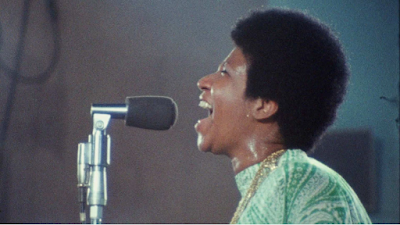(MA15+) ★★★½
Director: Ridley Scott.
Cast: Matt Damon, Adam Driver, Jodie Comer, Ben Affleck, Harriet Walter, Alex Lawther, Marton Csokas, Željko Ivanek, Tallulah Haddon.
Ridley Scott has a surprisingly diverse back catalogue. We tend to forget that the director behind Alien and Blade Runner also made Thelma & Louise and the under-rated Matchstick Men (and the god-awful The Counsellor while we're at it).
But if there's one common sub-genre in Scott's wheelhouse, it's the blood-soaked historical drama. From his debut The Duellists, through to 1492: Conquest Of Paradise, Gladiator, Kingdom Of Heaven, his disappointing Robin Hood, and Exodus: Gods & Kings, Scott has loved staging battles, building huge CG crowds, and embracing the dour darkness and violence of ye olde times.
With that in mind, The Last Duel is quintessential Scott. Sticking rather faithfully to a surprisingly true story from the late 14th century, it features blood-soaked battles, brings medieval France to life with some tasteful CG, and is as dour and bleak as they come.
Wedged in between all this is a salient and oddly timely look at the patriarchy, the treatment of women, in particular victims of sexual assault, and the horrific excesses of men. It's a medieval #MeToo movie that recounts the events leading up to the final judiciary-approved duel in France, telling its tale from three different viewpoints - the brash and honour-focused Jean de Carrouges (Damon), his erstwhile friend the hedonistic Jacques Le Gris (Driver), and Jean's forlorn but resourceful wife Magritte (Comer).
The Rashomon-style approach to its storytelling is both its biggest strength and its biggest weakness. While it's regularly fascinating to see the different perspectives of some events, it makes a long film (two and a half hours) feel genuinely long in places. It also means the film's most harrowing sequence is shown twice with subtle but important differences, but it doesn't make it any easier to watch second time around.
Equally draining is a slow and confusing start, as The Last Duel bounces from battle to battle, castle to castle, with little to hold on to but the bad haircuts and some accents that start somewhere in England but regularly wander across the Atlantic (oh, and they're supposed to be French, by the way).
Weird accents and wigs aside, the film predominantly improves as it progresses. The intrigue of who's telling the truth is compelling, and knowing that it's leading to a gruesome showdown helps drag you through the film. Scott's world-building is also excellent, as usual, and backed by some stellar production design. And in the hands of Damon, Driver, Comer and Affleck, the script is in safe hands, with each actor delivering top-notch performances, especially Comer and Damon.
Despite its pacing and repetition, there is enough in The Last Duel to keep you hooked until its physically and emotionally brutal ending. Its story is thought-provoking, its stars are outstanding, and it looks sumptuous, even if you struggle to take Damon and Affleck's haircuts seriously.






